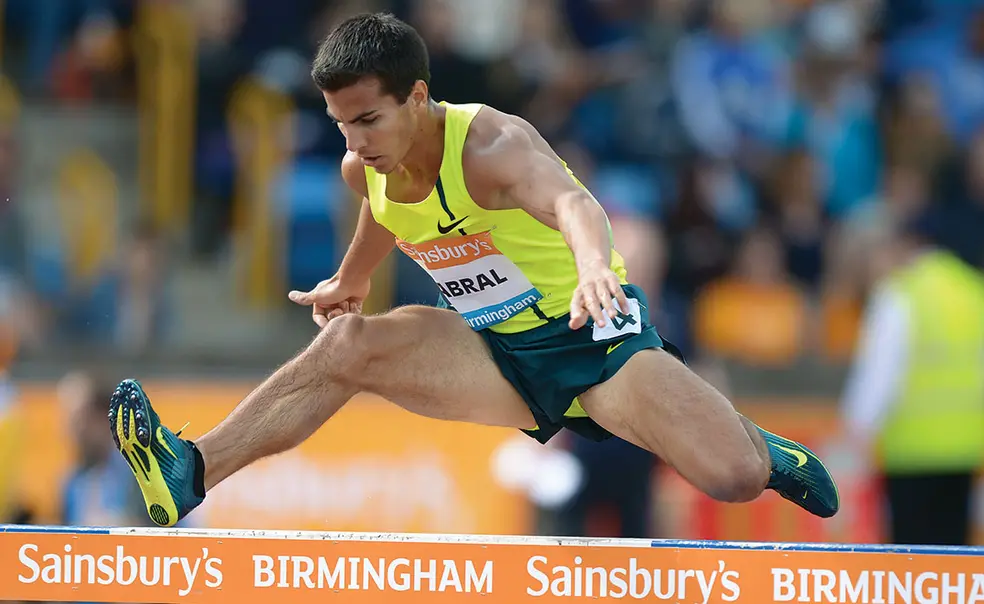The Road to Rio: Clearing Barriers, Cabral ’12 Aims For Strong Olympic Performance
For promising track and field collegians, it is often difficult to make a transition from attentive, multi-faceted university support to the often-solitary existence of a professional athlete. On the track and off, the better athletes ultimately make the necessary adjustments.
Donn Cabral ’12 has been one of those better athletes — though the path has not always been smooth. Few Ivy League athletes have had careers that compare with the spectacular résumé Cabral built while at Princeton. As a senior, the nine-time All-American was named the Outstanding Male Competitor at the Penn Relays after he anchored the Tigers to come-from-behind victories in two key relays. He also set an NCAA 3,000-meter steeplechase record at 8:19.14; captured the NCAA title in the same event; earned a steeplechase berth on the U.S. Olympic team; and reached the steeplechase final at the London Games, finishing a very respectable eighth.
But after the Olympics, the newly signed Nike athlete confronted some challenges that thwarted his ongoing improvement. His move to Washington state to pair up with his former high school coach resulted in a drastic lifestyle change that left him feeling alone and unsupported. “I had no thesis to write. I had no paper to study for. I had no meetings to go to,” Cabral explains. “It was just ‘run fast, work hard, and recover.’ That was all I did. And I kind of went stagnant a little bit mentally.”
Cabral later developed a mysterious illness, finally diagnosed as Lyme disease. After regaining his health, he new he had to make a change. “I realized that I was unsatisfied and a little bit unhappy where I was,” he says. “And once the running was gone, I just realized that I needed to do something different.”
Cabral moved back to the East Coast to join the New Jersey/New York Track Club in the fall of 2013. His return gave him teammates, training partners, and the support system he had lacked — and that proved to be the missing ingredient for his renewed success. After finishing third in the outdoor national steeplechase final the next summer, Cabral returned to the nationals in 2015 and finished second while setting an eye-catching personal best — 8:13.37, a mark that ranks him as the seventh-fastest American ever in the event. “That 6-second improvement was the first time I had [set a personal record] in the steeplechase since May of my senior year,” Cabral notes.
His restored progression has rekindled his optimism about this Olympic year. “The best approach for me is to call upon my really good ability to focus intently on something for a long period of time,” says Cabral, who clocked an indoor flat 3,000-meter personal record of 7:47.18 in February’s Millrose Games.
“I am now clearly ready to commit myself fully to be an Olympian again,” he says. “This year I don’t want to just survive. Olympic years happen only once every four years, and nothing is guaranteed. So I have to do a better job of taking advantage of it. I want to be able to go escape and put in a ton more training and really have two big periods of focus: Qualify for the Olympics, and do something really big there.”










No responses yet